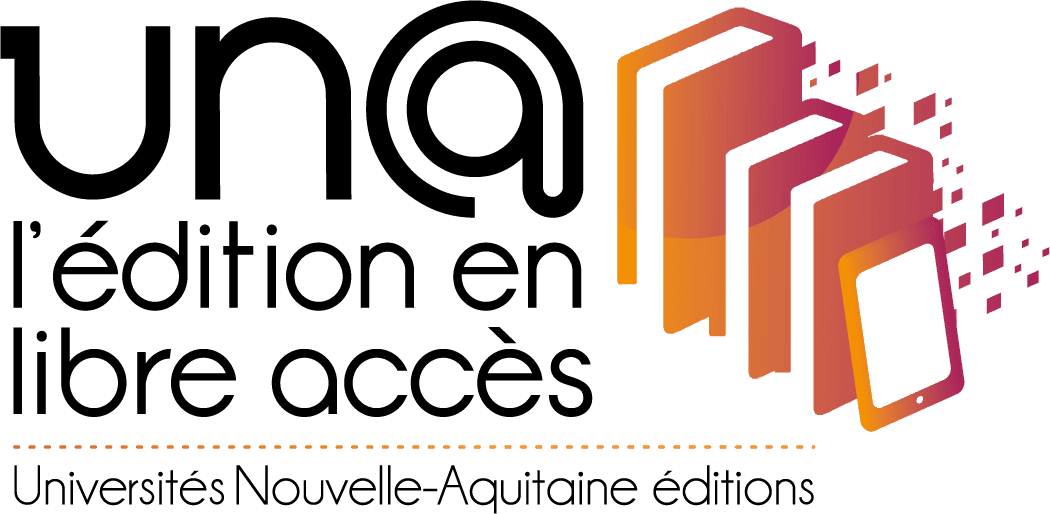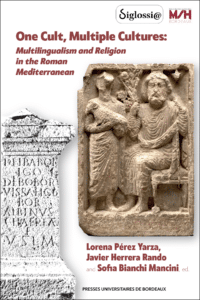UN@ est une plateforme d'édition de livres numériques pour les presses universitaires de Nouvelle-Aquitaine
Auteur : Javier Herrera Rando

UNIARQ-Center for Archaeology of the University of Lisbon
Faculdade de Letras da Universidade de Lisboa
Alameda da Universidade, 1600-214 Lisbon, Portugal
javierherrerarando@edu.ulisboa.pt
0000-0001-7524-0656
Javier Herrera Rando
Faculdade de Letras da Universidade de Lisboa
Alameda da Universidade, 1600-214 Lisbon, Portugal
javierherrerarando@edu.ulisboa.pt
0000-0001-7524-0656
Javier Herrera Rando
Javier Herrera Rando is a research fellow at UNIARQ – Centre for Archaeology of the University of Lisbon. His work focuses on early Romanisation, the formative phases of Roman epigraphic culture, and processes of Latinisation and language change, with particular interest in the Iberian Peninsula. He is currently involved in several research projects based at the universities of Lisbon, Granada, and Zaragoza, where he obtained a PhD in Ancient History in 2019.
Bibliographie sélective
- Estarán Tolosa, María José; Herrera Rando, Javier. « The Rise of Latin in Hispania Ulterior, Third Century BCE–Second Century CE ». In Latinization, Local Languages, and Literacies in the Roman West, edited by Mullen, Alex; Willi, Anna, 84-114. Oxford, United Kingdom: Oxford University Press Oxford, 2024, https://doi.org/10.1093/9780191994760.003.0003
- Herrera Rando, Javier. « Integration and Latinization: Some remarks on the Anthroponymy of Southern Hispania ». In Name and Identity: Selected studies on ancient anthroponymy through the Mediterranean, edited by De la Escosura Balbás, Cristina; Kurilic, Anamarija, 109-118. Oxford, United Kingdom: BAR Publishing, 2024. https://raco.cat/index.php/SEBarc/article/view/437112
- Herrera Rando, Javier. « Las etiquetas de hueso inscritas de Hispania Citerior: dos nuevos ejemplares de Osca ». Sylloge Epigraphica Barcinonensis 22 (2024): 131-143.
- Herrera Rando, Javier; Roldán Díaz, Andrés. « Epigrafía y paisaje rural en la campiña alta de Córdoba: el caso del Monte Horquera (Nueva Carteya, Córdoba) ». Ophiussa 8 (2024): 121-140. https://doi.org/10.51679/ophiussa.2024.157
- Herrera Rando, Javier. « Imperial Ideology and the making of Baetican epigraphic landscapes ». In Law and Power: Agents of Transformation of the Territorial and Urban Landscapes in the Roman West, edited by Mataix Ferrándiz, Emilia; López García, Antonio; Álvarez Melero, Anthony; Romero Vega, Diego, 19-39. Leiden, Netherlands: Brill, 2023. https://doi.org/10.1163/9789004685734_003
- Herrera Rando, Javier. « Dos nuevos grafitos ibéricos procedentes de La Corona (Fuentes de Ebro, Zaragoza) ». Veleia 40 (2023): 239-246. https://doi.org/10.1387/veleia.23211
- Herrera Rando, Javier. « Epigrafía expuesta y romanización temprana en la Hispania republicana ». Anuario de la Escuela de Historia Virtual 13 22 (2023): 76-100 https://doi.org/10.31049/1853.7049.v14.n23.41280
- Herrera Rando, Javier. « La difusión del hábito epigráfico funerario en contextos indígenas de la provincia Baetica ». Athenaeum 111 2 (2023): 515-546. https://doi.org/10.36707/palaeohispanica.v23i0.533
- Herrera Rando, Javier. « Nueva tésera de hueso procedente del yacimiento romano-republicano de La Cabañeta (El Burgo de Ebro, Zaragoza) ». Habis 54 (2023): 109-122. https://doi.org/10.12795/Habis.2023.i54.07
- Herrera Rando, Javier. « Oram eam in universum originis Poenorum. La latinización del litoral hispano-fenicio ». Palaeohispanica 23 (2023): 249-263. https://ifc-ojs.es/index.php/palaeohispanica/article/view/533
- Herrera Rando, Javier. « Epigrafía pública y latinización en el sur de Hispania ». In Aprender la escritura, olvidar la escritura. Nuevas perspectivas sobre la historia de la escritura en el occidente romano, edited by Ramírez Sánchez, Manuel; Moncunill Martí, Noemí, 119-146. Vitoria, Spain: Servicio Editorial de la Universidad del País Vasco, 2021
- Herrera Rando, Javier. Cultura epigráfica y romanización en la Hispania meridional. La epigrafía pública entre la República y el Imperio. Vitoria, Spain: Servicio Editorial de la Universidad del País Vasco. 2020.
Mots clés
Ancient History, Epigraphy, Historical Sociolinguistics, Latinisation, Palaeo-European Languages and Writings, Roman Hispania, Romanisation.
This volume explores religious inscriptions as a lens for analysing the sociocultural mechanisms behind multilingual and multicultural dynamics in the western and Mediterranean provinces of the Roman Empire.
The northwestern region of the Iberian Peninsula, stretching from the northern banks of the Tagus River to the Cantabrian Sea, remained largely illiterate until it was fully pacified at the end of the 1st c. BC.
This volume explores religious inscriptions as a lens for analysing the sociocultural mechanisms behind multilingual and multicultural dynamics in the western and Mediterranean provinces of the Roman Empire.


